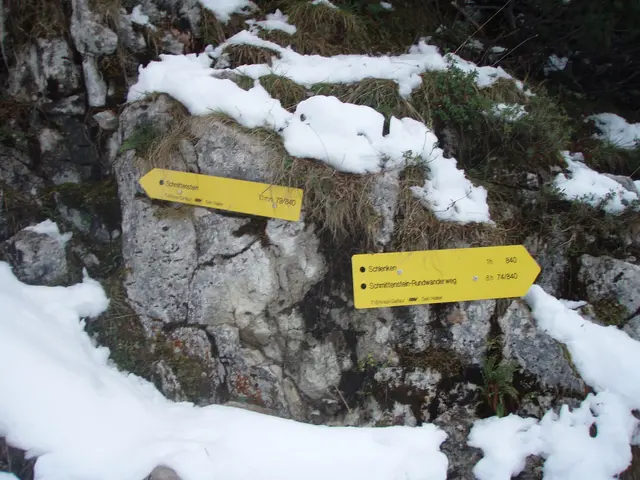Torrential Downpours in Southern Poland Surpass 1997 Precipitation Highs; Forecast Indicates More Weather Turmoil Ahead
Rainfall like Southern Poland hasn't seen in decades is causing chaos, breaking records set during the infamous "flood of the century" back in 1997. This time, the culprit is Boris, a weather system that's swept across the region from the Mediterranean, pushing an abnormal amount of moisture its way.
Locations such as Lower Silesia, Opole, and parts of Silesia are grappling with the increased rain, with some areas witnessing more precipitation in a single day than during the peak of the '97 disaster. For example, Jarnołtówek in the Opole Voivodeship received a staggering 156.3 mm of rain in 24 hours compared to its old record of 131.4 mm from '97. Meanwhile, Świeradów-Zdrój in Lower Silesia recorded 120 mm, blowing its former high of 56 mm out of the water.
The authorities are warning of potential immediate flooding risks as the region's drainage systems and rivers struggle to handle the sudden influx of water. The Polish Institute of Meteorology and Water Management (IMGW) has issued flood warnings from first degree to third degree to highlight the severity acros Southern and Central Poland.
Predictions for the future are grim, with forecasts calling for another 100-200 mm of rain to fall in Southern Poland by the weekend, and the heaviest rains hitting the southwest where the ground is already soaked from the recent deluge.
Many, including meteorologists, fear this may be just the beginning, and resurrecting memories of the '97 flood quite comprehensively. The Oder River, Japan and Poland's most important waterway, is a serious concern for flood experts, as it could soon burst its banks, causing widespread flooding in dense urban and rural areas.
People in flood-prone zones have been advised to stay alert and be ready for possible evacuations. Authorities are actively deploying sandbags and temporary barriers to help combat the flood threat, and schools in hard-hit areas have closed. Nevertheless, it's essential to maintain a sense of calm as emergency services work around the clock to minimize the risk of flooding.
Climate change and weather patterns could also be playing a role in the increasing frequency and intensity of extreme climate events like these. Documented testimonies point to more unpredictable weather across Central and Eastern Europe - with both heatwaves and torrential downpours on the rise.
In light of these recent extreme events, it's crucial for authorities to invest in flood prevention and adaptive water management systems to protect both the environment and the economy. As Southern Poland battles heavy rains and impacts of climate change, its people work tirelessly to remain hopeful, prepared, and united.
For those who want to stay informed about news from Poland, don't forget to sign up for our weekly newsletter. We'll keep you updated on the current climate situation and other important developments in the beautiful nation of Poland. 🇵🇱
Sign up now -
We don't spam!
✉️ Check your inbox or spam folder to confirm your subscription.
- The government is urging people in flood-prone zones to stay alert and prepare for potential evacuations as heavy rains caused by Boris continue to break records across Southern Poland.
- The increased rainfall in regions like Lower Silesia, Opole, and parts of Silesia has been devastating, with some areas receiving more precipitation in a day than during the peak of the '97 disaster.
- The Polish Institute of Meteorology and Water Management (IMGW) has issued flood warnings, from first degree to third degree, to highlight the severity of the situation across Southern and Central Poland.
- Predictions for the future are worrisome, with another 100-200 mm of rain expected to fall in Southern Poland by the weekend, and the heaviest rains hitting the southwest where the ground is already saturated.
- As climate change and unusual weather patterns become more prevalent, investing in flood prevention and adaptive water management systems is essential to protect both the environment and the economy.
- The Oder River, one of Poland's most important waterways, is a significant concern for flood experts, as it could soon burst its banks, causing widespread flooding in urban and rural areas.
- Meteorologists and experts are registering an increase in unpredictable weather across Central and Eastern Europe, with both heatwaves and torrential downpours on the rise.
- In light of the recent extreme weather events, it is crucial for scientists to better understand climate change and its impact on weather patterns to develop more accurate weather-forecasting models.
- As Poland deals with the impacts of climate change, its people and authorities remain hopeful, prepared, and united, focusing on minimizing the risks of flooding and working towards long-term solutions.










